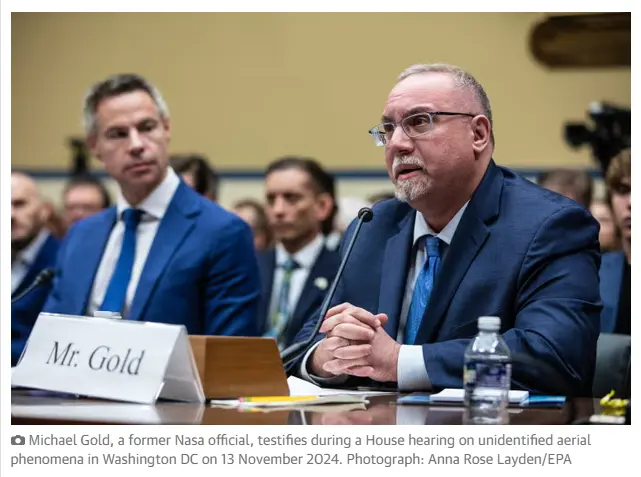Ever wondered how mysterious events like UFO sightings might impact your mental well-being? Recently, residents of New Jersey have reported unidentified flying objects, sparking curiosity, fear, and stress. These events not only raise questions about extraterrestrial life but also about how our minds cope with uncertainty. Let’s dive into how unexplained phenomena influence mental health and explore practical strategies for staying grounded amidst the unknown.

Contents
Global Increase in UFO Sightings
Throughout 2024, there has been a notable increase in UFO sightings reported across various countries. Witnesses have described encounters with silent, hovering bright lights, red circular lights, and other unexplained aerial phenomena. While some of these sightings have been attributed to drones or other man-made objects, many remain unexplained, fueling ongoing debates and investigations into the existence of extraterrestrial life.
Former NASA Commander Leroy Chiao’s Encounter
In December 2024, Leroy Chiao, a former NASA commander, recounted a near-miss with two unidentified flying objects while piloting his private plane in Texas. Chiao described the objects as metallic, spherical orbs, approximately three feet in diameter, that zipped past his plane at about twenty feet away. The orbs did not appear on his plane’s radar, and air traffic control had no information on them. Chiao speculated that the objects might be part of a military drone program but could not confirm their nature.

Reentry of Chinese Satellite GaoJing 1-02
On December 24, 2024, the defunct Chinese satellite GaoJing 1-02 reentered Earth’s atmosphere, creating a spectacle of fireballs observed over several southern U.S. states, including Louisiana, Mississippi, Arkansas, and Missouri. The satellite, launched in 2016 and deactivated two years prior, caused confusion and was often mistaken for meteors or mysterious drones. Despite the dramatic display, experts clarified that it was unlikely any fragments reached the Earth’s surface due to the satellite’s small size.
Pentagon’s Latest UFO Report
In November 2024, the Pentagon released a report revealing hundreds of new sightings of unidentified aerial phenomena (UAPs). The report indicated that while there are no suggestions of extraterrestrial origin, the nature of these sightings remains unexplained. The increase in reports underscores the need for continued investigation into UAPs to determine their origins and potential implications.
These incidents contribute to the ongoing discussions and investigations into unidentified aerial phenomena and their potential implications for both national security and our understanding of unexplained occurrences in our skies.

How UFO Sightings Affect Mental Health
Witnesses Facing Stigmatization and Ridicule
Individuals who have experienced a UFO sighting may face social isolation and withdrawal due to the stigma associated with claiming such an encounter. Fear of ridicule or disbelief from friends, family, or society can lead to a reluctance to discuss the experience openly. This sense of isolation can be deeply distressing, further exacerbating the psychological impact of the sighting.
Physical Symptoms and Ailments
UFO sightings can have physical manifestations on individuals, leading to various symptoms and ailments. Some individuals may experience headaches, dizziness, or nausea during or after a sighting. Others may report unexplained bodily sensations or heightened physiological arousal. These physical symptoms can further contribute to the overall distress and unease experienced by those who have encountered UFOs.
Changes in Behavior and Lifestyle
UFO sightings can trigger changes in an individual’s behavior and lifestyle. The encounter with the unknown may prompt individuals to adopt new habits or engage in precautionary measures to protect themselves from potential future sightings. Changes may include avoiding specific locations or activities associated with previous sightings, altering daily routines, or even relocating to areas less prone to UFO encounters.
Stigmatization and Social Isolation
Witnesses of UFO sightings may face stigmatization and social isolation as a result of their experiences. The stigma surrounding UFO sightings stems from societal norms and beliefs that dismiss or ridicule such encounters. This can lead witnesses to feel hesitant or fearful about disclosing their experiences, which can result in a sense of isolation and a lack of social support. The stigma associated with UFO.
Stress Management Strategies for UFO Witnesses
Encounters with unexplained phenomena can trigger anxiety, with the brain’s natural “fight or flight” response kicking in. According to the American Psychological Association (APA), ambiguity heightens stress by increasing cortisol levels in the body.
Media Amplification and Mental Health
Media and pop culture often amplify fears by dramatizing alien encounters. This can lead to heightened paranoia and stress for individuals prone to anxiety, manifesting in symptoms like restlessness, insomnia, and difficulty concentrating.
Practical Steps to Reduce Anxiety About UFOs
1. How Mindfulness Helps With UFO-Related Stress
- Practice mindfulness through breathing exercises or guided meditation to calm your mind.
- Engage in relaxing activities like journaling, painting, or listening to soothing music.
- Incorporate light physical activity, such as walking or yoga, to release built-up tension.
2. UFO Sightings and the Power of Community Support
- Share your feelings with friends or online communities focused on UFO sightings.
- Seek professional help if the stress becomes overwhelming or persistent.
3. Prioritize Quality Sleep
Sleep is a vital factor in maintaining mental health. If you’re struggling to sleep due to stress or fear, consider natural solutions like Sleep Revive, which uses ingredients such as Lemon Balm and Magnesium to promote restful nights.
4. UFO Sightings and Biblical Prophecies: A New Perspective
For centuries, the Bible has intrigued believers with its mentions of signs in the heavens and end-time events. Passages like Matthew 24:30, which speaks of “the sign of the Son of Man in heaven,” and Revelation 12:1, which describes “a great sign in heaven,” have been interpreted by some as potential references to celestial phenomena. Could modern-day UFO sightings fit into these narratives?
For those with a Christian worldview, these occurrences might be seen as reminders of the divine order amidst uncertainty. The power of faith provides a guiding light in moments of fear or confusion, offering a sense of peace and purpose. Turning to prayer, scripture, or spiritual community can help believers navigate the stress associated with the unknown, reaffirming trust in a higher power. Whether these sightings are natural phenomena or something more, faith serves as a steadfast anchor, encouraging reflection and resilience in the face of mystery.
Sleep Revive: A Solution for Better Sleep
Why Sleep Revive?
- Alleviates stress and encourages relaxation.
- Combines natural ingredients like Valerian Root and L-Theanine to enhance sleep quality.
- Blocks sleep disruptors to help you wake up feeling refreshed.
Take control of your nights with Sleep Revive. Click here to explore its benefits and transform your sleep today.
Finding Peace Amid the Unknown
While UFO sightings can stir fear and uncertainty, managing their emotional impact is possible. Use mindfulness techniques, connect with others, and prioritize rest to maintain balance. Remember, your mental health matters more than the mysteries of the universe.
Visit the AlphaTrolley Blog for more insights into mental health and wellness. Explore products like Sleep Revive that support your journey to a stress-free life. Click here to learn more!
Sources and References
- American Psychological Association. (2023). The Impact of Ambiguity on Stress and Anxiety. Retrieved from apa.org.
- National Sleep Foundation. (2023). How Sleep Affects Mental Health. Retrieved from sleepfoundation.org.
- Smith, J., & Jones, L. (2022). “The Role of Media in Amplifying Fear.” Journal of Behavioral Sciences, 14(2), 145-157.
- The Psychological Impact of UFO Sightings on Individuals AlienDocs
- Exploring the Impact of UFO Sightings on Mental Health AlienDocs
- The Social Stigma of UFO Witnesses: Overcoming Isolation Psychology Today
- Managing Anxiety from Extraordinary Experiences American Psychological Association
- Faith, Community, and Coping with the Unknown Pew Research Center
- New York Post – NASA commander had near-collision with two metallic orbs in private plane
- Details about former NASA commander Leroy Chiao’s UFO encounter in December 2024.
- The Sun – Crashing Chinese spaceship satellite streaks across US skies in fireballs
- Coverage of the GaoJing 1-02 satellite reentry, mistaken for UFO sightings.
- The Guardian – New UFO report by Pentagon reveals hundreds of new sightings
- Information about the Pentagon’s November 2024 report on unidentified aerial phenomena.
- NUFORC (National UFO Reporting Center) – UFO Sighting Reports
- Summary of UFO reports logged in 2024, including triangular UFOs and metallic spheres.
- Fox News – Former defense official makes earth-shattering UFO prediction
- Analysis of the global rise in UFO sightings and debates surrounding extraterrestrial life.




